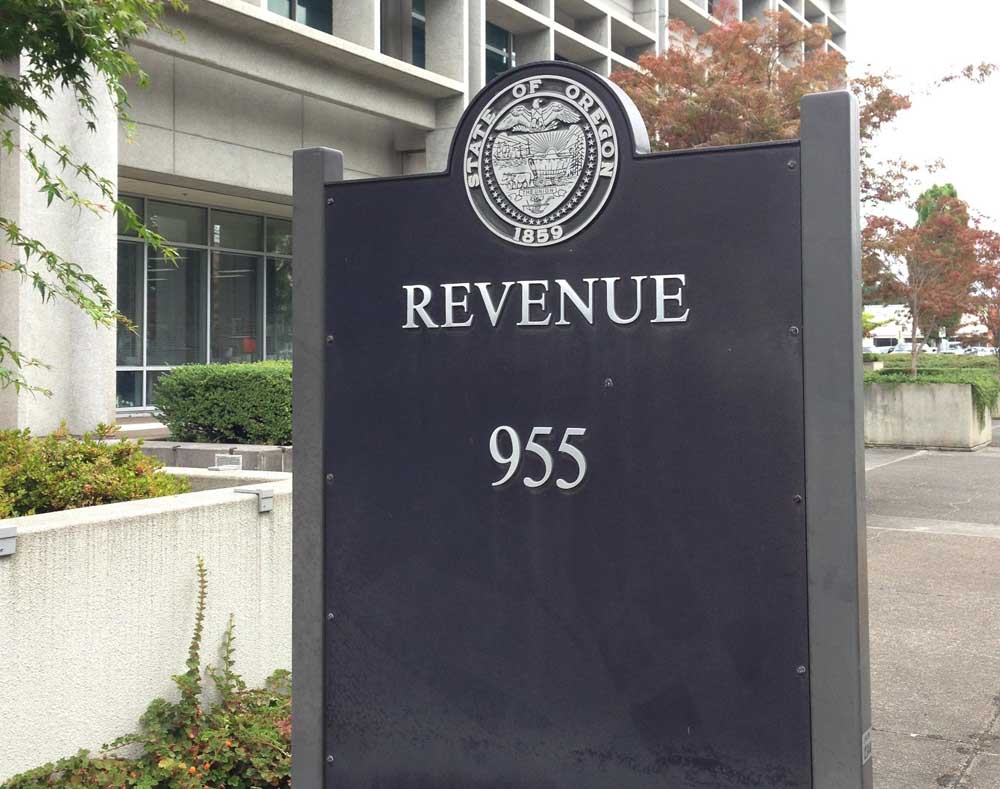State tax collection positions were funded, but not filled
Published 3:44 pm Tuesday, May 2, 2017

- The Oregon House on Friday narrowly passed a Senate bill aimed at blunting the impact of federal tax reforms on state coffers. It faces a possible Constitutional challenge and is the target of a potential initiative petition.
Capital Bureau
SALEM — Less than a week after Oregon Gov. Kate Brown called for renewed efforts to collect millions of dollars in debt owed to the state, legislators are asking the Oregon Department of Revenue to explain why vacancies remain at the agency after the Legislature already allocated money to step up its collections staff.
The agency still has about 100 open positions, including 31 in collections, according to lawmakers on a budget subcommittee, even though the Legislature appropriated an estimated $10 million to the department to fill those 100 positions in the current two-year budget period, which ends June 30.
The Legislative Fiscal Office estimates there is about $3.3 billion owed to the state overall. There is a limited amount that is collectible for a multitude of reasons, and only about $600 million to $800 million of that money is owed to the state’s general fund — where there is an approximately $1.6 billion budget gap lawmakers have to close before they adjourn in July.
Shawn Waite, director of the revenue department’s administrative services division, told lawmakers Tuesday during budget hearings for the department that some money was spent on personal services and backfilling positions, but that about $4.5 million will be left over.
State Rep. David Gomberg, D-Central Coast, who has previously advocated for increased debt collection efforts, asked for more details about which positions are vacant, which were backfilled somewhere else, and what happened to the money the legislature allocated.
“I think we’d appreciate a little more detail than simply the fact that we’ve got $4 million left over and we double filled some other positions someplace else,” said Gomberg.
Sen. Betsy Johnson, D-Scappoose, also asked for more information.
“We appropriated money based on certain representations that the agency made, and it appears that those promises haven’t been kept,” Johnson said. “I have to be honest, I am stunned at how many vacancies you have, and Rep. Gomberg has been beating the drum about uncollected revenue, we’re about to transfer, assuming the policy bills pass, a lot of that work to you, and I sort of feel like we got hoodwinked a little bit.”
Johnson said the Legislature appropriated the money for a purpose, and she wondered whether the agency spent the money for that intended purpose.
“We can absolutely get that detail to you,” Waite said. Waite said the agency did not check with the Legislative Fiscal Office or ask to go before the legislature during the interim legislative session.
Johnson said she wanted more information about how the decision was made to spend the money elsewhere, and why the department did not consult or disclose that information to the legislature.
“I would have to get back to you on that as far as the leadership decisions on that,” Waite said.
“What I don’t want is, blame the dead guy,” Johnson said. “…Just be forewarned that that doesn’t work for me. Your former director was not the only person in the room when that decision was made.”
The director of the Department of Revenue, Nia Ray, has been at the helm of the agency since October.
Gomberg noted that the agency had told the Legislature they needed more resources to implement another proposal now before the Legislature, Senate Bill 89, that would give the Department of Revenue responsibility for debt collection for certain agencies.
“I want to start by making it very clear, I will support more resources for the Department of Revenue if we’re actually hiring people to do that collection work,” Gomberg said. “What I can’t support is allocating more money to hold vacancies open.”
Ray, the department’s director, said that filling vacancies was not her first priority when she got to the department because she had to assess whether all the vacancies were truly needed.
“We were uncertain as to whether it made good financial sense to really hire a group of individuals given the fact that we didn’t know if we would be able to support them throughout the remaining biennium,” Ray said.
Gomberg said that new collections agents recovered about 12 times what the state spent to hire them, and that seemed like a good investment.
Ray said those collections did generate returns, but not all vacancies were in the collections area, and at a certain point the law of diminishing returns applied to hiring collections agents.
“I’ll be happy with a 2- or 300 percent return on my investment, and of course, the context here is that we’ve got a huge gaping budget deficit,” Gomberg said. “We’re trying to fund schools, we’re trying to fund senior programs, we’re trying to take care of Oregonians that are sick, and meanwhile we’ve got $600 million in one agency that we haven’t been able to get our hands on.”






